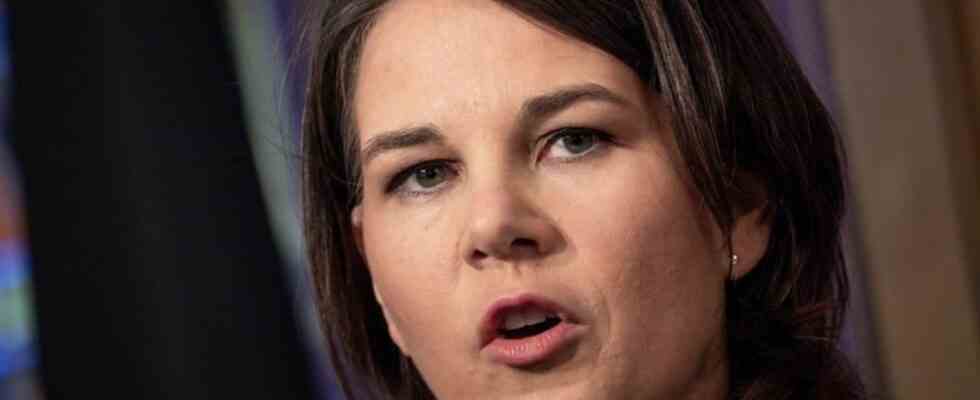federal government
Baerbock criticizes the Merkel government’s energy policy
“They were clearly mistakes”: Annalena Baerbock. Photo: Michael Kappeler/dpa
© dpa-infocom GmbH
Federal Foreign Minister Baerbock is harsh on the German energy policy towards Moscow under ex-Chancellor Merkel. To insist on the Nord Stream 2 gas pipeline was fatal.
Foreign Minister Annalena Baerbock criticized the German energy policy towards Russia under the then Chancellor Angela Merkel (CDU) in an unusually sharp manner.
Holding on to the German-Russian Nord Stream 2 gas pipeline, which has long been criticized by Central and Eastern Europeans, was fatal, said the Green politician during a visit to the Latvian capital Riga. “Instead of Nord Stream, there could have been and actually should have been a Baltic Stream based on clean energy,” added Baerbock. “These were clear mistakes”, which the new federal government corrected.
Merkel had long described Nord Stream 2 as a private-sector project. After the change of government, her successor, Chancellor Olaf Scholz (SPD), did not initially distance himself from the project either. Because of the Russian attack on Ukraine, however, Germany had put the certification of the pipeline on hold.
After a meeting with the Baltic Foreign Ministers Edgars Rinkevics (Latvia), Eva-Maria Liimets (Estonia) and Gabrielius Landsbergis (Lithuania), Baerbock said that assigning blame would not help. It is about drawing the decisive conclusions from the new reality. At the same time, however, she conceded that Germany would have to put up with criticism in this context. “With our stance on Nord Stream 2, we have increased our dependence on Russia with our eyes wide open” and placed gas storage facilities in the hands of Russian corporations even after Russia’s annexation of the Ukrainian Black Sea peninsula of Crimea in 2014.
Since 2014, independence from Russian gas should have been reduced and, above all, the expansion of renewable energies should have been focused on, said Baerbock. If you look at which European countries the route of Nord Stream 2 leads along the bottom of the Baltic Sea, you could have built offshore wind farms there and thus secured your own energy supply.

